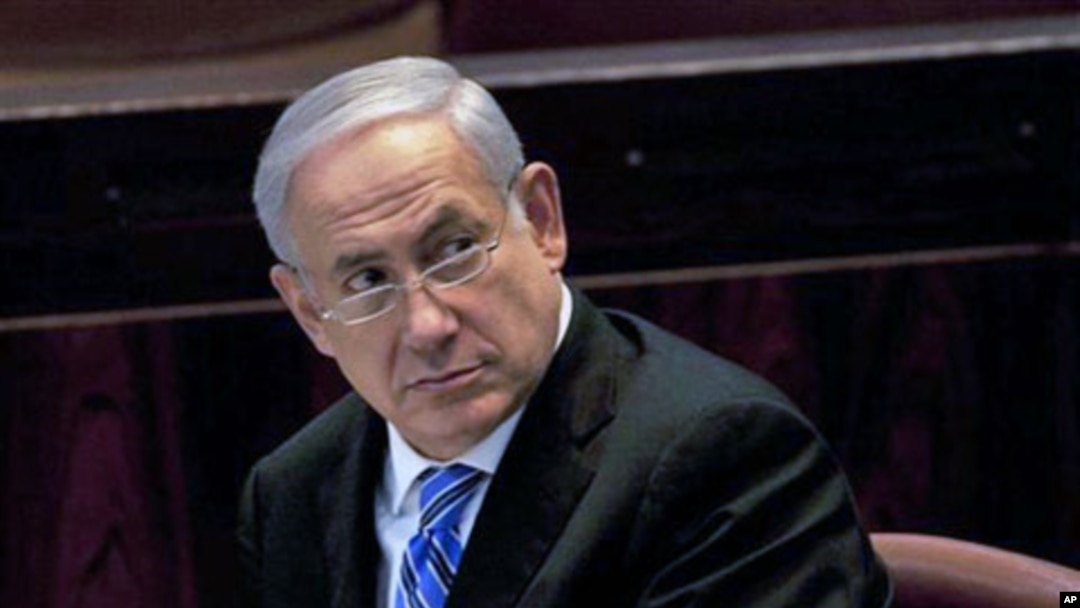Israeli Prime Minister Benjamin Netanyahu is scheduled to meet President Barack Obama in Washington May 20th. One of the topics expected to be discussed is the recent accord between Hamas and Fatah - two distinct Palestinian organizations.
Experts say the recent reconciliation accord is meant to heal the rift between two bitter enemies.
The secular Fatah movement is led by Mahmoud Abbas, who is also president of the Palestinian Authority. He has been in power since January 2005, succeeding Yasser Arafat, who died in November 2004. Arafat was the founder of the Fatah movement.
The militant group Hamas is also known as the Islamic Resistance Movement. For years it has carried out suicide bombings and rocket attacks against Israel, prompting inevitable Israeli military responses. An unofficial ceasefire between Hamas and Israel has been in place since April. The United States and Israel consider Hamas to be a terrorist group. But Hamas also runs an extensive social service network.
Hamas controls the Gaza Strip after defeating the Palestinian Authority’s forces in 2007, while the Fatah-led Palestinian Authority holds sway over the West Bank.
Earlier this month the two groups signed a reconciliation accord. The agreement was brokered by the Egyptians and signed in Cairo.
Among other things, the pact calls for an end to the state of war between them, the creation of an interim government and legislative and presidential elections within a year.
Alon Ben-Meir, a Middle East expert at New York University, says both Palestinian factions also agreed in principle not to use violence, especially against Israel.
“This hasn’t been talked about much but I know from my own very reliable sources that this was a critical issue both for Egypt and for Fatah - to insist that if Hamas wants to accept this kind of a deal, they must refrain from using any violent activity against Israel because this could invite massive Israeli retaliation,” said Ben-Meir.
Ben-Meir says Hamas must address another key issue. “They really have to renounce violence and remove from their charter the clause that calls for Israel’s destruction. Israel has every legitimate right to demand that Hamas do so, prior to sitting and negotiating with Hamas,” he said.
Israeli Prime Minister Benjamin Netanyahu has dismissed the accord, calling it “a mortal blow to peace and a big prize for terror.” The United States has deferred judgment pending more information.
Fawaz Gerges, a Middle East expert at the London School of Economics, says both sides have daunting challenges ahead to make the accord work. “The terms of the accord are extremely ambiguous because on the two major elements which are very controversial - first the formation of a new government, we don’t know who will be in charge of the new unified government between Hamas and Fatah,” he said. “And secondly, we don’t know whether Hamas, which controls the Gaza Strip, will allow the security forces belonging to the Palestinian Authority to be in charge.”
However Gerges says the significance of the agreement should not be underestimated.
“The political implications of the pact mean that both sides - Hamas and Fatah - have come to realize the futility of their vendetta, of their bickering. They have come to realize that the Palestinian public basically is tired of this particular bickering and rivalry. And they have also come to realize that unless they unify their ranks, unless they present a unity government, there will be no Palestinian state and the international community will not take the Palestinians seriously,” said Gerges.
Gerges believes both sides will adhere to the reconciliation pact. “There is no love affair between Hamas and Fatah but the reality has imposed itself on both the leadership of Hamas and the leadership of Fatah. This is really a marriage of convenience - it’s not a marriage of love. And I would argue the odds are in favor, as opposed to the odds are against this particular reconciliation pact,” he stated.
Ben-Meir goes one step further. “I’m prepared to predict there will be no major violent activities anywhere, because Hamas will be very careful not to violate the agreement they have made with the Egyptians and with Fatah itself,” he said.
Ben-Meir says Hamas understands the changes sweeping the Arab world and it is trying to make the most of it.
Hamas/Fatah Accord to Be on US-Israeli Agenda

Israeli Prime Minister Benjamin Netanyahu is taking a tough line toward an emerging Palestinian government before his high-profile trip to Washington. In a clear message to the Hamas militant group, Benjamin Netanyahu told his parliament Monday that Israe

